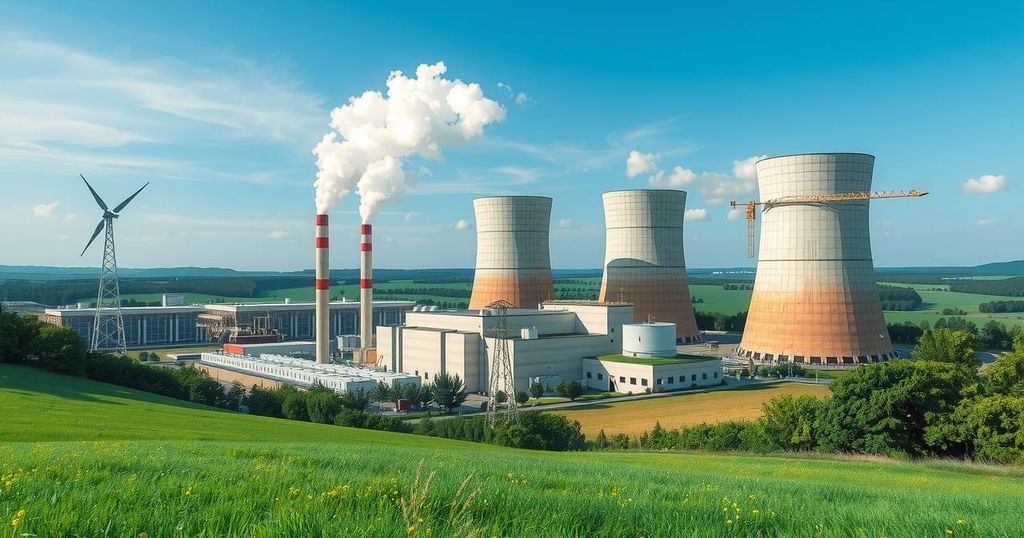Trump’s Ambitions regarding Ukraine’s Nuclear Power Amid Ceasefire Talks

The Trump administration is negotiating a ceasefire with Russia as Putin pauses strikes on Ukraine’s energy infrastructure, including nuclear sites. There’s notable interest in U.S. ownership of Ukrainian power plants for enhanced security. Experts question Putin’s trustworthiness and the likelihood of a successful deal amid conflicting interests and historical context surrounding warfare.
As U.S. officials gear up for negotiations with Russia on a ceasefire, questions arise about the Trump administration’s approach. Notably, President Putin has recently paused attacks on Ukraine’s critical energy infrastructure, including the Zaporizhzhia Nuclear Power Station. Secretary of State Marco Rubio and National Security Advisor Mike Waltz are set to discuss extending this ceasefire, particularly over the Black Sea. Previous agreements, such as the Black Sea Grain Initiative, have been unsuccessful, causing skepticism among security experts about Moscow’s reliability in future deals.
In the context of these discussions, Trump is looking toward a potential U.S. acquisition of Ukraine’s electric supply and nuclear plants. This strategy stems from claims that American ownership would enhance protection for Ukrainian energy infrastructure. Rubio and Waltz echoed this sentiment, emphasizing that U.S. involvement could bolster security during their recent communication with President Zelenskyy.
Rebekah Koffler, a former DIA officer, expressed doubts about how Putin will react to this proposal, stating, “Putin almost certainly is not in favor of this idea and will attempt to sabotage such a deal.” She highlighted the complications regarding Zelenskyy’s willingness to concede control of the Zaporizhzhia plant, currently under Russian control. Any forceful attempt to take over could lead to significant conflict.
Trump’s interest in Ukraine’s energy sector appears rooted in his belief that American enterprises could improve Ukraine’s defenses. Historical contexts often shape such discussions, especially since American companies have already been active in Ukraine during ongoing conflicts. This focus has fueled tensions amid past interactions between Trump and Zelenskyy.
Koffler warned that a U.S. takeover of the nuclear plants could be perceived by Russia as an effort to gain greater security leverage over Ukraine, which might escalate tensions. Dan Hoffman, a former CIA Moscow station chief, shared concerns about the efficacy of U.S. ownership in advancing peace negotiations. He contended that there’s been no substantial deal reached, and noted ongoing Russian attacks even after Putin’s ceasefire agreement.
Hoffman emphasized that to approach a ceasefire, Putin would need to demonstrate a genuine interest in ending the conflict, a stance he deems currently absent. He asserted that historical context indicates wars ultimately conclude through battlefield outcomes rather than negotiations alone and voiced skepticism regarding the likelihood of an end to hostilities under the present conditions.
The article outlines the complexities surrounding U.S. involvement in Ukraine’s nuclear and energy sectors amid ceasefire negotiations with Russia. With skepticism surrounding Putin’s reliability and the viability of strategic agreements, the focus shifts to the potential consequences of U.S. ownership of Ukrainian nuclear power. As negotiations unfold, the fundamental uncertainties surrounding Putin’s intentions and the historical patterns of warfare highlight the challenging path to peace in the region.
Original Source: www.foxnews.com







